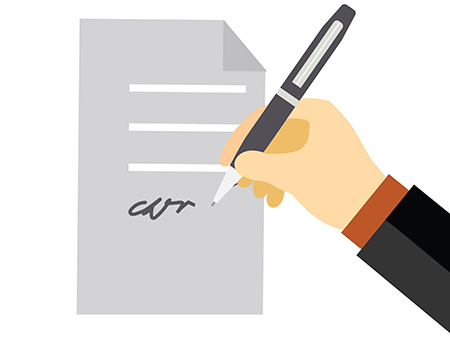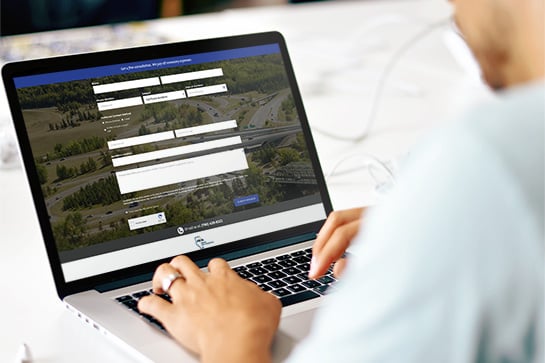
If your lawyer and the lawyer for the defendant insurance company are unable to negotiate a settlement, steps are taken to involve an independent third party to assist the parties in trying to reach a settlement. In a Judicial Dispute Resolution (JDR) an actual Judge is involved and in a Mediation, a senior lawyer who is also an experienced Mediator is involved. If an appropriate settlement can be reached, then you sign a document accepting the terms and agreeing that you have no further claims.
Mediation
Mediation is an interactive process that involves bringing you and your lawyer together with the insurance adjuster and their lawyer to try to resolve your claim with the assistance of a Mediator. A Mediator is a neutral third party, usually a personal injury lawyer or retired judge, with special mediation skills. The Mediator will try to help you and the insurance company negotiate a settlement of your personal injury claim. The goal of Mediation is to resolve your claim.
Your lawyer at CAM LLP will meet with you well before the date scheduled for Mediation, to prepare you.
They will likely discuss the following with you:
- why mediation is being considered
- the mediation process in detail
- your role in the mediation
- what your opening position could be, and why (your lawyer will review the options with you, and you in turn will provide your instructions)
- the assessed value of your claim
- the facts and arguments that will be presented on your behalf, and
- the facts and arguments that the insurance company will likely present.
At the end of the preparation for Mediation you should have a good understanding of what will happen during the process and what your goals are for the Mediation.
Who Attends and What Happens During the Mediation?
The Mediation will likely take place in your lawyer’s office. Your lawyer will be with you, and the insurance adjuster will be there with their lawyer. Sometimes the defendant (the person alleged to be at fault for the accident) will attend. The Mediation will start with each lawyer making opening statements. You, as the injured party, can also make an opening statement or say a few words about how the accident has affected you, and how your life has changed because of your injuries. After opening statements the Mediator will usually meet with each side separately, and bring the sides together again if needed. Everyone is working hard to emphasize the strength of their own case, although it is important to appreciate any weaknesses or risks. Multiple offers and counter offers are usually exchanged. Mediation can take a few hours or a few days, depending upon various factors.
How Is Your Case Presented?
Your lawyer will review the facts and the law, and advance arguments to support your claim. The insurance company will do the same. In addition to the opening statements and discussions throughout the Mediation, key information is shared in a Mediation Brief. The Brief is submitted to the Mediator and insurance counsel some weeks before Mediation, and typically includes the following information:
- expert reports that document the impact of the accident on your life
- excerpts from transcripts of Questionings
- a detailed breakdown of the damages you have suffered, and an assessment of those damages, which may include general damages (“pain and suffering”), past and future loss of income, loss of housekeeping capacity, future cost of care and out of pocket expenses
- case law, and
- details of any subrogated claims.
Benefits of Mediation
The benefits of mediation are:
- An earlier settlement. You will likely be compensated for your injuries months or even years before you would get compensation after trial.
- A mediated settlement is achieved by both sides agreeing to the settlement, as opposed to a judge deciding what the outcome should be. Both sides have greater input and greater influence over the outcome.
- A mediation is less stressful than a trial and may provide you with a sense of closure. Both sides are coming to the Mediation with the goal of resolving your claim, rather than “winning” the case at trial.
- If settlement is not reached in Mediation, you still have the option of trial or settlement down the road, and you will have gained insight into the strengths and weaknesses of your case, and that of the insurance company. As well, some of the issues in dispute may get resolved, which will narrow the issues moving forward and likely shorten the time in which your claim will resolve.
What Happens Once a Settlement is Reached?
If your claim settles during the Mediation there is a binding agreement in place. Sometimes the settlement agreement is oral, and reflected only in the notes of the lawyers and Mediator, and other times there is a written agreement. After the Mediation the insurance company’s lawyer will request the settlement funds from the insurance company and provide them to your lawyer, “in trust” for you. Once the funds are received your lawyer will file a document at the courthouse that discontinues your action. Your lawyer will then meet with you and have you sign a Release. A Release is a legal document that “releases” or gives up all claims you have arising out of the accident or incident. The Release must always be signed and witnessed before the settlement cheque can be provided to you.
Your lawyer will provide you with a statement that shows the funds that were received on your behalf and the funds that were paid out or are owing to another party or the law firm under the contingency fee agreement. The contingency fee is based upon the amount of the settlement and when the claim settled (for example, before Questioning). There may be additional closing documents that your lawyer will review with you before you receive your settlement cheque.
Can you talk about your settlement?
That depends on whether there is a confidentiality clause in your settlement agreement. Talk to your lawyer about this.
What Happens if a Settlement is Not Reached?
If a claim goes to Mediation it will most often settle during the Mediation. However, if it does not, there is still benefit to the process. Some claims settle after Mediation in part because of what was achieved during the Mediation. Mediation is confidential and “without prejudice,” which means that nothing you say during the Mediation can be used against you outside of the Mediation process, such as at trial.
Judicial Dispute Resolution
JDR mediation is similar to regular mediation except that the mediator is a Justice of the Court of Queen’s Bench. We will also prepare you for the JDR mediation, much like a regular mediation. At a mini-trial, your lawyer and the Defendant’s lawyer will present to a judge the medical reports and other evidence that they expect to lead at trial. No witnesses are called, but the lawyers argue the merits of the case on the basis of the information presented.
The judge will then indicate how he or she would rule, had the matter proceeded to trial. The decision acts as a “sneak peek” into how a court would decide the case, and while not binding, the opinion of an impartial judge usually helps the parties to achieve a settlement.
